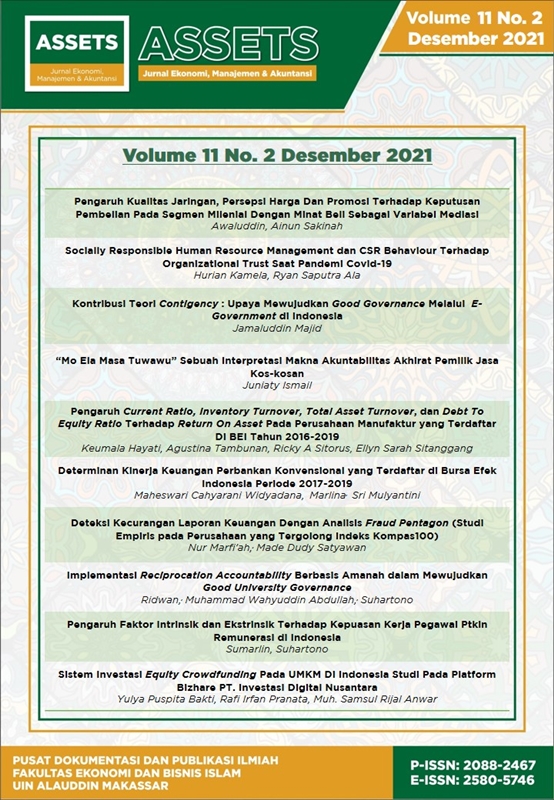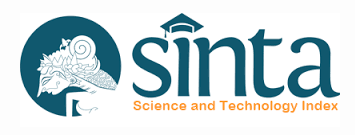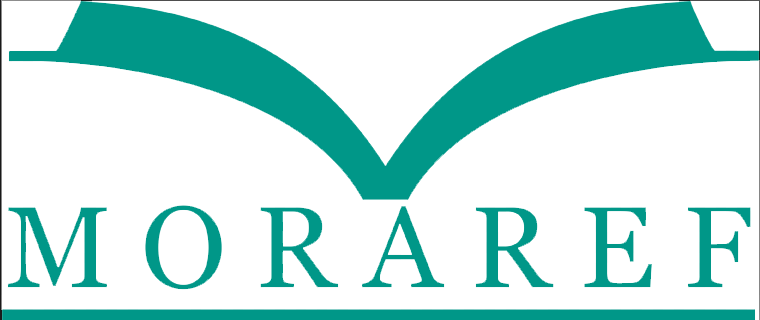SOCIALLY RESPONSIBLE HUMAN RESOURCE MANAGEMENT DAN CSR BEHAVIOUR TERHADAP ORGANIZATIONAL TRUST SAAT PANDEMI COVID-19
Abstract
Socially Responsible Human Resource Management (SRHRM) and CSR Behavior are factors that play a role in measuring the condition of employees working in a company environment, especially in management organizations. The purpose of this study is to quantitatively analyze SRHRM and CSR Behavior on Organizational Trust. The goal is to find out the condition of employees when facing the COVID-19 pandemic so that their effectiveness and efficiency can be measured. The data uses primary data (questionnaire). The total sample is 64 private companies in Greater Jakarta for the 3 months period of COVID-19 (May-June-July 2021). The reason the sample was taken is that private companies in Jabodetabek have an average CSR and effective organization so that the influence of their employees can be measured. The research method uses linear regression with STATA. The dependent variable is Organizational Trust 5 items: fairness, commitment, promise, management, career development. The independent variables are SRHRM and CSR Behavior based on the questionnaire items. The results of the study explain that SRHRM affects Organizational Trust. SRHRM creates a conducive work environment so that trust increases because the organization is effective. While other results, CSR Behavior does not affect Organizational Trust, due to differences of opinion between employees and the company, because companies affected by the pandemic do not allow companies to develop their employees' CSR Behavior strategies.
References
Aguinis, H., Villamor, I., & Gabriel, K. P. 2020. Understanding employee responses to COVID-19 : a behavioral corporate social responsibility perspective, Management Research: Journal of the Iberoamerican Academy of Management, Vol 438 18(4), 421–438. https://doi.org/10.1108/MRJIAM-06-2020-1053
Archimi, C.S., Reynaud, E., Yasin, H.M. and Bhatti, Z.A. 2018. “How perceived corporate social responsibility affects employee cynicism: the mediating role of organizational trust”, Journal of Business Ethics, Vol. 151 No. 4, pp. 907-921.
Aryee, S., Budhwar, P.S. and Chen, Z.X. 2012. “Trust is a mediator of the relationship between organisational justice and work outcomes”, Journal of Organisational Behavior, Vol. 23 No. 3, pp. 267-285, https://doi.org/10.1016/B978-1-4557-4815-0.00018-0
Becker, B.E. and Huselid, M.A. 2010. “SHRM and job design: narrowing the divide”, Journal of Organizational Behavior, Vol. 31 Nos 2/3, pp. 379-388.
Bombiak, E. and Marciniuk-Kluska, A. 2019. “Socially responsible human resource management as a concept of fostering sustainable organization-building: experiences of young polish companies”, Sustainability, Vol. 11 No. 4, pp. 1044-1072.
Collier, J. and Esteban, R. 2007. “Corporate social responsibility and employee commitment”, Journal of Business Ethics, Vol. 16 No. 1, pp. 19-33.
Dahlsrud, A. 2008. “How corporate social responsibility is defined: an analysis of 37 definitions”, Corporate Social Responsibility and Environmental Management, Vol. 15 No. 1, pp. 1-13.
Frangieh, C. G., & Yaacoub, H. K. 2019. Socially responsible human resource practices : disclosures of the world ’ s best multinational workplaces, 15(3), 277–295. https://doi.org/10.1108/SRJ-11-2017-0226
Garcia, M.M. & Greenwood, K. 2015. “Visualizing CSR: a visual framing analysis of US multinational companies”, Journal ofMarketing Communications, Vol. 21No. 3, pp. 167-184.
Gaudencio, P., Coelho, A. and Ribeiro, N. 2017. “The role of trust in corporate social responsibility and worker relationships”, Journal of Management Development, Vol. 36 No. 4, pp. 478-492.
Gaskell, A. 2020. “Will we return to the office after COVID-19?”, Forbes, available at: https://www.forbes.com/sites/adigaskell/2020/04/28/will-we-return-to-the-office-after-covid-19/#70dad34eb1f8 (accessed 01 June 2021)
George, N. A., & Edward, M. 2020. Corporate social responsibility , organizational trust and commitment : a moderated mediation model. https://doi.org/10.1108/PR-03-2020-0144
Gould-Williams, J. 2003. “The importance of HR practices and workplace trust in achieving superior performance: a study of public-sector organizations”, The International Journal of Human Resource Management, Vol. 14 No. 1, pp. 28-54.
He, J., Morrison, A. M., & Coca-stefaniak, J. A. 2020. On being warm and friendly : the e ff ect of socially responsible human resource management on employee fears of the threats of COVID-19, 33(1), 346–366. https://doi.org/10.1108/IJCHM-04-2020-0300
Jamali, D.R., El Dirani, A.M. and Harwood, I.A. 2015), “Exploring human resource management roles in corporate social responsibility: the CSR-HRM co-creation model”, Business Ethics: A European Review, Vol. 2.4 No. 2, pp. 125-143.
Jia, X., Liao, S., Van der Heijden, B.I. and Guo, Z. 2019. “The effect of socially responsible human resource management (SRHRM) on frontline employees’ knowledge sharing”, International Journal of Contemporary Hospitality Management, Vol. 31 No. 9, pp. 3646-3663.
Kundu, S.C. and Gahlawat, N. 2015. “Effects of CSR focused HRM on employees’ satisfaction: a study of Indian organizations”, Journal of Strategic Human Resource Management, Vol. 4 No. 2, pp. 42-48.
Liu, D. and Liu, J. 2017. “Dissecting event system theory: tenets and opportunities for research and practice”, Quarterly Journal of Management, Vol. 2, pp. 64-80.
Nie, D., Lamsa¨, A. and Puce˙taite˙, R. 2018.“Effects of responsible human resource management practices on female employees’ turnover intentions”, Business Ethics: A European Review, Vol. 27 No. 1, pp. 29-41.
Parker, L.D. 2014. “Corporate social accountability through action: contemporary insights from British industrial pioneers”, Accounting, Organizations and Society, Vol. 39 No. 8, pp. 632-659.
Parker, L. D. 2020. The COVID-19 office in transition : cost , efficiency and the social responsibility business case, 33(8), 1943–1967. https://doi.org/10.1108/AAAJ-06-2020-4609
Paula, M., Sancho, L., & Martínez-martínez, D. 2018. Understanding the link between socially responsible human resource management and competitive performance in SMEs, 47(6), 1211–1243. https://doi.org/10.1108/PR-05-2017-0165
Robinson, S.L. 1996. “Trust and breach of the psychological contract”, Administrative Science Quarterly, Vol. 41 No. 4, pp. 574-599.
Robles. 2020. Organizational Transformation During COVID-19, IEEE ENGINEERING MANAGEMENT REVIEW, VOL. 48, NO. 3, THIRD QUARTER, SEPTEMBER 2020, 48(3), 31–36.
Shen, J. and Zhu, J.C. 2011. “Effects of socially responsible human resource management on employee organizational commitment”, The International Journal of Human Resource Management, Vol. 22 No. 15, pp. 3020-3035
Shen, J. and Zhang, H. 2019. “Socially responsible human resource management and employee support for external CSR: roles of organizational CSR climate and perceived CSR directed toward employees”, Journal of Business Ethics, Vol. 156 No. 3, pp. 875-888.
Shen, J. and Zhu, C.J. 2011. “Effects of socially responsible human resource management on employee organizational commitment”, The International Journal of Human Resource Management, Vol. 22 No. 15, pp. 3020-3035.
Wright, P. and McMahan, G.C. 2011. “Exploring human capital: putting ‘human’ back into strategic human resource management”, Human Resource Management Journal, Vol. 21 No. 2, pp. 93-104.
Copyright (c) 2021 Assets : Jurnal Ekonomi, Manajemen dan Akuntansi

This work is licensed under a Creative Commons Attribution-NonCommercial-ShareAlike 4.0 International License.










